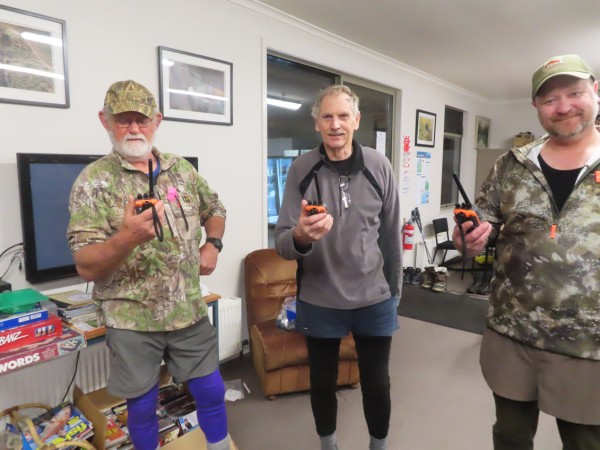In a classic case of a relatively small amount of money having a massive impact, the use of Meridian’s contestable Power Up fund by volunteer group Friends of Deep Cove to purchase 10 next generation AT220 automatic possum and rat traps has been a game changer.
Unlike traditional pest traps that require a human to reset them once sprung, the AT220s reset themselves and “go on killing”, explains Friends of Deep Cove co-founder Alistair Macdonald.
Featuring metal plate, a high-powered spring and small electric motor that resets the trap three minutes after it is sprung, the ‘smart traps’ have massively increased the effectiveness of the group’s trapping programme.
The traps are also selective in terms of the critters they exterminate, explains Macdonald.
“The number one advantage of them is that they have a daylight sensor. On daylight they turn themselves off – so there is no way that they can catch birds and things that are out during the day. And at night when the rats and the possums are out and about they turn themselves on.”
The traps are also capable of indicating what manner of predator they have just taken out.
“They have a sensor on them. If the trap goes off and the trap wiggles and there is movement in the trap they designate it as a possum. If it goes off and there is no movement it is classed as a rat – because rats dies instantly in those traps.”
Every three months, groups of between five and seven volunteers spend up to five nights at Deep Cove baiting and re-setting trap lines, eliminating as many pests as they can while they have their boots on the ground.
And now, thanks to the self-resetting AT220s, the predator population continues to be thinned out long after the trapper teams have departed.
“They have been very effective,” says Macdonald.
“We put them in in April and then went back in July for the first time. So they had been in there for three months. They killed 35 possums and 48 rats while we were away.”
The programme began in 2018 when Macdonald was approached by the Deep Cove Outdoor Education Trust, initially aiming to prevent rats from boarding boats that used the anchorage before visiting places like Resolution Island and other sanctuaries that were attempting to become predator-free.
Funded initially by a grant from a fuel company, the group began by cutting trap lines in and around the hostel and wharf, before expanding their efforts into the nearby bush.
The trapping operation now consists of 77 A24 traps, 32 box traps, 20 rat traps, 22 Trapinators and the 10 AT220 automatic possum and rat traps purchased with a $4800 grant from Meridian’s Power Up fund.
More recently, another Power Up grant was used to purchase three two-way radios, allowing the trapping teams to safely keep in touch with home base while out in the bush.

“The trapping programme has been incredible,” says Williams.
“The support Meridian has given those guys has had a massive impact. We are pretty much predator-free here now. I haven’t seen a stoat in the area for about three years.”
As a result, kiwi are often heard at night by the trappers when in Deep Cove, confirms Macdonald.
“I have been out in the bush hunting and tramping since I was 16 and I am now 74. I hadn’t seen a kiwi in the wild until I went to Deep Cove.
“Travelling over the road at night we saw three different kiwi. We believe the trapping is making a difference.”
